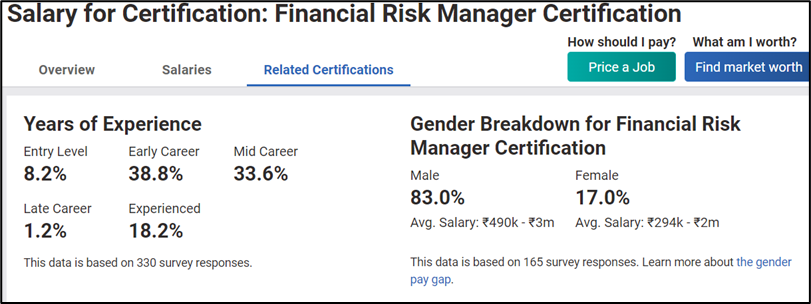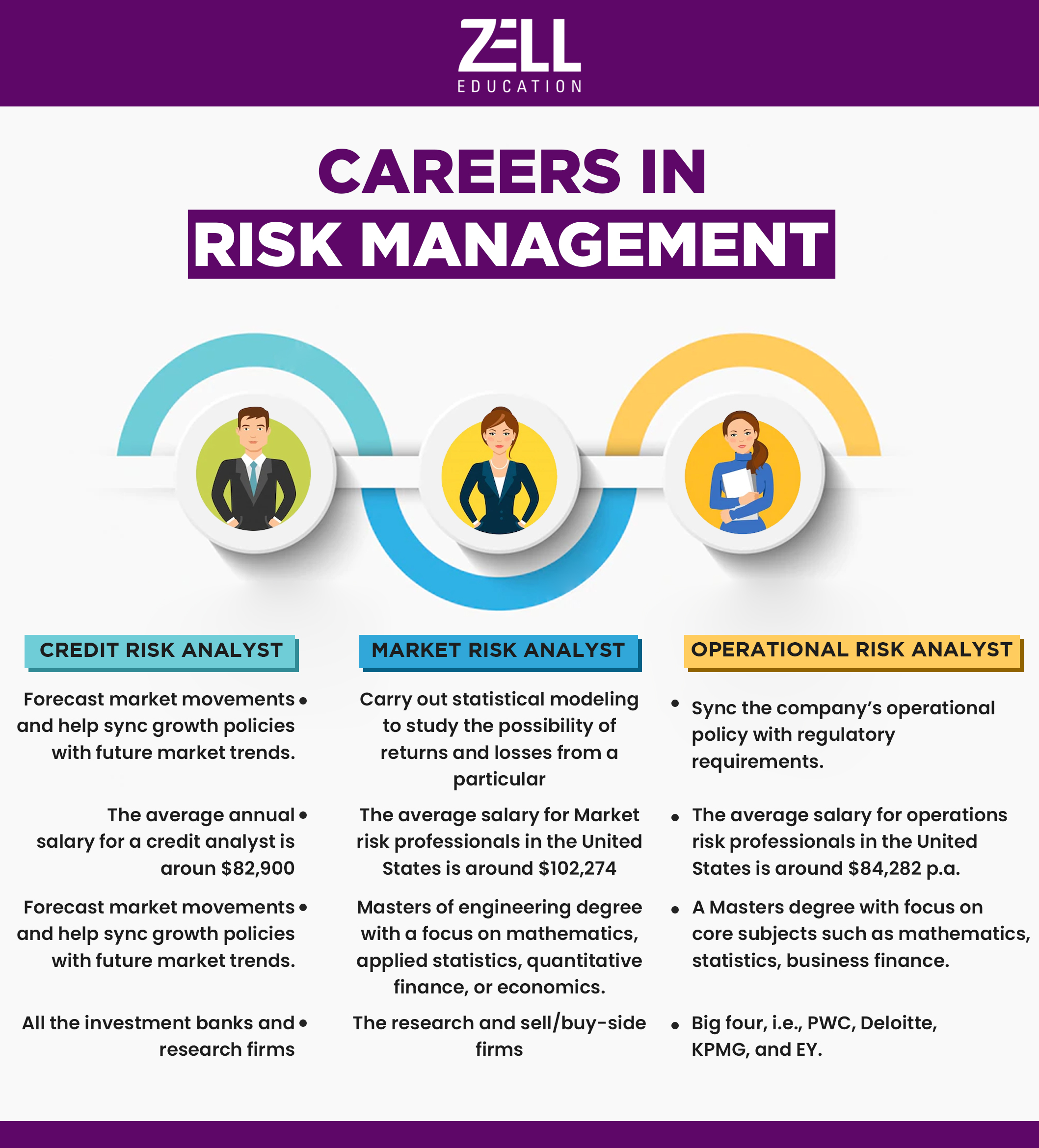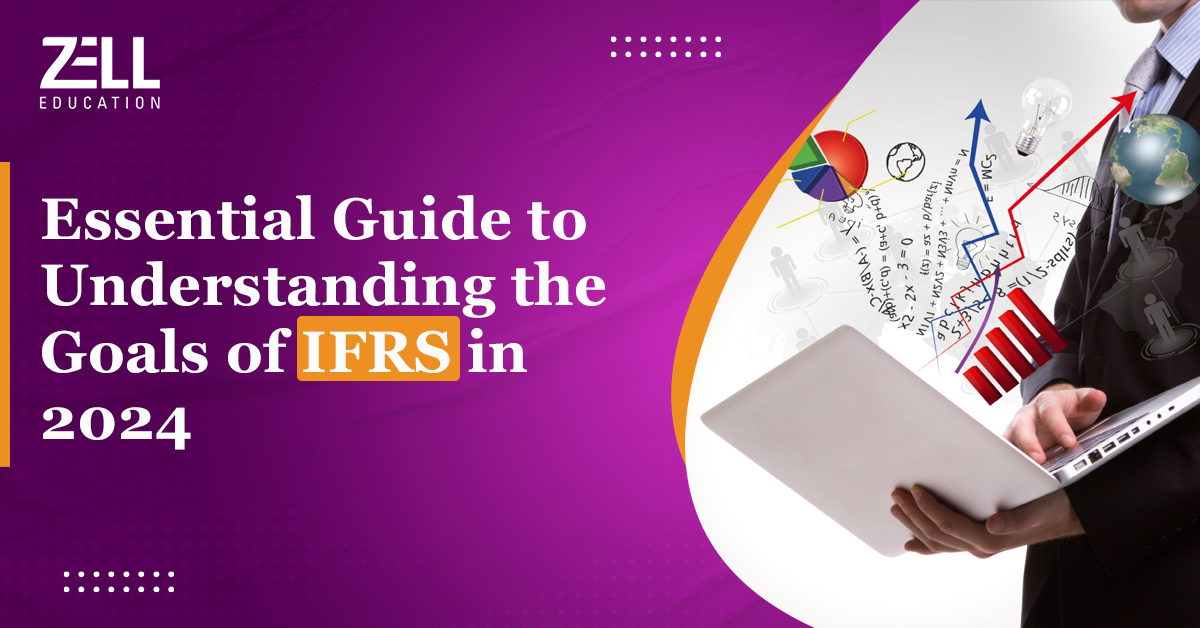Top 5 Careers in Risk Management that are Hiring in 2024
Risk Management is not an easy field to get into, it’s a challenging yet exciting profession that demands excellent analytical skills. To get into this profession, you can either pursue a CFA degree or an FRM degree to gain knowledge on different kinds of risk parameters like market risk, liquidity risk, operational risk, foreign exchange risk, credit risk and other risks. Once you’ve mastered all the concepts, a risk manager’s role is to keep track of all the financial transitions and investments to understand the risks involved. However, just completing your learning journey as an FRM Isn’t the end. This profession has a wide scope with multiple streams. While pursuing the FRM studies, you need to figure out where your interest lies as there are multiple career paths in risk management Senior Risk Analyst, Investment Risk Manager, Risk Management Analyst, and Financial Risk Consultant.
While risk management seems like a career option with a limited scope, it has more to it than what meets the eye. Here is a broader glimpse into Risk Management as a career and what it has to offer.
FRM Course Details
| Differentiators | FRM |
| Organizing Body | GARP: Global Association of Risk Professionals |
| Course Duration | 1 to 2 years |
| Difficulty Level (passing percentage) | 45% for Part I and 63% for Part II |
| Eligibility Criteria | An undergraduate in the final year of their degree can also apply for the FRM course. However, you need to clear your part 1 to appear for the part two examinations. Within the 5 years of your learning journey, you must also have 2 years of relevant work experience. |
| Career Scope | Job profiles you can explore
Risk Analyst Risk Manager Credit Risk Analyst Market Risk Analyst Regulatory Risk Analyst |
| Top Hiring Firms | PwC
ICBC JP Morgan Chase Consulting Firms Hedge Funds |
FRM Salary in India
Top 5 Careers in Risk Management
Financial Risk Management is a global certification that’s accepted in the US, UK, Singapore and China, and other Asian countries. But since this course is fairly niche, your scope will be on analysis and management. Here are some of the job profiles you can explore upon completion of this course.
- Risk Analyst: Risk Analysts are professionals who analyse financial sources to predict disasters, operational risks like unethical human behaviour, and financial risks, like credit and interest rate risks. Risk Analysts have to go through financial documents, study the economic atmosphere and accordingly help their clients or company understand the potential risk in every business decision.
- Risk Manager: The role of a Risk Manager is quite similar to that of a Risk Analyst. However, the main job of a Risk Manager is to compile and evaluate the received from the Risk Analysts. They figure out the level of risk involved in making crucial decisions and help create strategies to averse the same. Risk managers develop plans to minimize and mitigate negative financial outcomes through a combination of project management and proposal development.
- Credit Risk Analyst: The job of a Credit Risk Analyst is quite important for those in the field because they how risky it is to provide loans to an individual or a company. A Credit Risk Analyst needs to review the application sent for the loan along with the financial statements of the particular individual. They need to analyse and understand if the applicant has the means to pay for the loan and the willingness for it. The information is based on both the applicant’s financial records and his or her credit history.
- Market Risk Analyst: As a Market Risk Analyst, you’d be required to work for a financial firm and predict the market risk based on the changing market conditions and policies. To bag this profession a prestigious professional degree like CFA or FRM is quite essential. Work experience through internships in college can also be beneficial. Starting salaries may vary but are often low for novice market risk analysts.
- Regulatory Risk Analyst: A Regulatory Risk Analyst needs to possess excellent technical skills. Actively support senior officers in the identification and implementation of wholesale action plans with the goal of developing a strong Credit Risk Management Framework under the OCC’s Heightened Expectation criteria.
We hope that with this detailed article on careers in Risk Management, you’ve received a fair understanding of your pathway towards entering the field of risk aversion. To take the first step towards your journey, start with a global financial degree like Chartered Financial Analyst from Zell Education.
FAQ
Is risk management a good career?
Yes, risk management is a niche pathway with a wide scope and a good compensation package. It also has a global demand.
What are the career opportunities in risk management?
There are multiple career paths in risk management like Senior Risk Analyst, Investment Risk Manager, Risk Management Analyst, and Financial Risk Consultant.
Is risk management in demand?
Yes, since finance is a dynamic field, the need for Financial Risk Managers is quite high.
Which certification is best for risk management
The CFA or FRM degree is the best for risk management.











